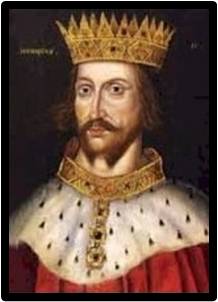JULY 13 - ST. HENRY II

Henry was born at Albach, Hildesheim in Bavaria. He was the son of Gisella of Burgundy and Henry II, the Duke of Bavaria. When he was a boy, he studied at the cathedral school in Hildesheim and was taught by bishop Wolfgang of Regensburg. Henry wanted to become a priest, but after his father’s death, Henry was made Duke of Bavaria.
One night he had an unusual dream. St. Wolfgang, his beloved teacher, appeared to him. Wolfgang pointed to the words, “after six” written on the wall. What could that mean? Perhaps Henry was to die in six days? So he prayed with great feeling for six days but at the end of the six days, however, he was in perfect health.
Perhaps it meant six months? The duke devoted himself to doing good more than ever. At the end of six months, he was even healthier than before. So he decided he had six years to get ready for death. But instead of dying after six years, he was elected emperor of Germany. Then he understood what the dream had meant.
Henry worked hard to keep his people happy and at peace. To defend justice he had to fight many wars. He was honest in battle and insisted that his armies followed his example. Henry married a very gentle and loving woman named Cunegundes (or Kunigunda). She, too, has been proclaimed a saint.
Henry and Cunegundes went to Rome in 1014, where they were crowned emperor and empress of the Holy Roman Empire. It was a great honor because Pope Benedict VIII himself crowned them. Emperor Henry turned out to be one of the best rulers of the Holy Roman Empire.
With great respect, he encouraged changes for improvements in the Church. He supported the growth of new monasteries, founded schools and built beautiful churches. He showed his own love for Jesus and the Church with sincerity and love and worked hard to maintain peace in Europe.
He was a man of prayer and although he was attracted to religious life, he accepted his role as husband and ruler and fulfilled his responsibilities generously. Henry was just fifty-two when he died in 1024.
